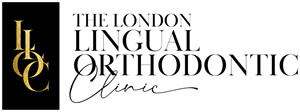It’s one of the most frequently asked question when it comes to teeth and orthodontic treatment: Do I need braces and will they help?
Often, people assume that braces are for visibly crowded, crooked or protruding teeth, but there are many different reasons why braces may be recommended for treatment. On the one hand they are a useful precursor to cosmetic dental treatments on the other, they can improve the alignment of your jaw and bite. Also, treatment of protruding teeth in children and young people will reduce the risk of accidental damage.
Here are some other common problems that braces can treat.
Teeth not meeting together properly or comfortably
If the upper and lower arches of your teeth clash with or overlap each other when they come together, or do not meet at all, this may be what we refer to as a malocclusion.
Even if your teeth appear straight or you do not feel any particular discomfort, malocclusions can cause long-term damage to your teeth and gums, such as chipped or worn-down teeth. If they are very uneven they might be harder to clean too, leading to a build-up of plaque.




Gaps between your teeth
Gaps between your teeth aren’t necessarily something to be worried about. However, if you’re concerned about their appearance then braces can be fitted to help close the gaps and leave you feeling more confident about your smile.
If gaps have developed over time, this could be a sign of tooth migration and can be caused by more serious issues such as gum disease.
Teeth which protrude outside of the lips
Protruding front teeth known as a overjet may be hereditary and related to the shape and size of your jaw, but in some cases can be caused by habits such as thumb sucking from a young age.
Fixed braces are a good way to treat protruding teeth as the wires help to pull them back into place behind your lips over time.
Difficulty brushing or flossing between all your teeth
We know that professionals in dentistry and orthodontics always emphasise brushing and flossing your teeth regularly, but it is for good reason! It is so important to clean every surface of your teeth to ensure that any lingering food particles and bad bacteria are removed to prevent plaque from forming and building up.
If you find you are not able to reach all parts of your teeth when using floss or interdental toothbrushes, this could be a sign that your teeth are overly crowded. We commonly recommend fixed braces to gently realign the teeth and reduce crowding.
Biting your tongue or cheeks
Have you found you often accidentally bite your tongue or the inside of your cheeks, causing redness, broken skin and irritation? This may happen as you speak or eat, or even whilst you are sleeping. There are many reasons this can happen but it could also indicate an issue with your bite, which would benefit from orthodontic treatment.
Speak to an orthodontist
If you are unsure, the best thing you can do is speak to a professional. At The London Lingual Orthodontic Clinic, we offer a free initial chat with our founder and leading orthodontist, Dr Asif Chatoo, which can be held over Facebook or Skype, as well as full consultations.
Our full, comprehensive consultations with Dr Chatoo are followed up by an in-depth report on your treatment recommendations.
Get in touch with the team today if you’d like to find out more or book your first call.
















